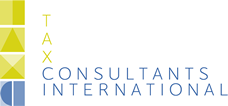Payroll & HR services Global Mobility Services International labor and cross border assignments Payroll & HR Tax compliance
An overview of the income dependent combination rebate
The income dependent combination rebate (in Dutch: 'inkomensafhankelijke combinatiekorting') can be claimed by a Dutch taxpayer:
- who earns income from labor, including income from one or more private enterprises, income from employment or (taxable) income from other labor, which is more than € 5,547 (2023) , or who is entitled to the self-employed deduction; and
- has a child who was not yet 12 years old at the beginning of the calendar year and was registered at the living address of the taxpayer for a period of at least 6 months; and
- who has no partner during the calendar year, or if the taxpayer has a partner, the taxpayer has a lower income from labor than his/her partner.
Under certain conditions a child which is not officially registered at the living address of the taxpayer, can be deemed to be registered there (in co-parenting situations for example).
If the aforementioned 6 month term cannot be met because of the decease of the taxpayer or the child, the 6 month term is deemed to be met. The 6 month term also has to be met in the year of birth, meaning that for children born after 1 July no income dependent combination rebate applies in that year.
The income dependent combination credit amounts to € 2,694 maximum, increased with 11.45% of the income from labor in excess of € 5,547, but no more than € 2,694 (2023).
If the labor income of the taxpayer is exactly the same as the income from labor of his/her partner, only the eldest can claim the income dependent combination rebate.
Different rates apply in case of reaching the State pensionable age.


.png)



